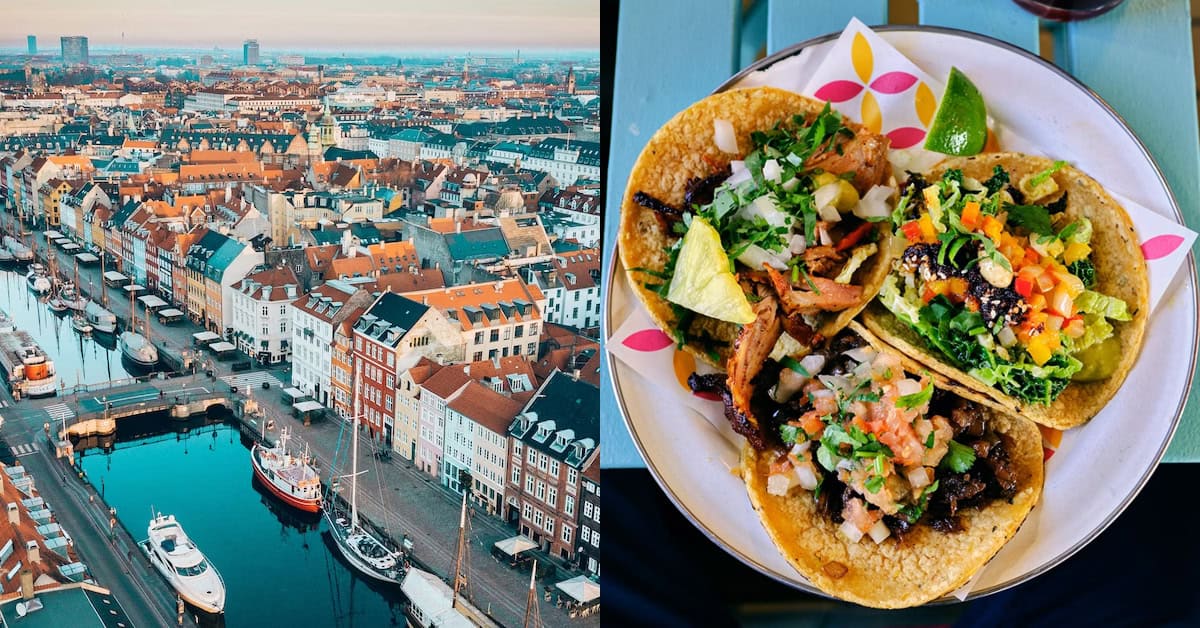Danish cuisine is a unique blend of traditional Scandinavian flavors and modern culinary techniques. The cuisine is known for its simplicity, freshness, and use of high-quality ingredients. Danish food is heavily influenced by the country’s geography, climate, and history.
The country’s long coastline provides an abundance of fresh seafood, while the fertile land produces a variety of vegetables, fruits, and grains. Danish cuisine is also famous for its pastries, bread, and dairy products, which are enjoyed by locals and tourists alike.
Danish cuisine halal or not?
Is Danish food halal?
Not all Danish food is halal. Some Danish dishes may contain non-halal ingredients such as pork or alcohol. However, there are also many halal options available in Denmark, especially in larger cities with a significant Muslim population.
It is important to check the ingredients and preparation methods of any dish before consuming it to ensure it is halal.
What kind of food do Danish eat?
Danish cuisine is known for its simplicity, freshness, and use of local ingredients. Some popular Danish dishes include:
- Smørrebrød: Open-faced sandwiches with various toppings such as pickled herring, smoked salmon, roast beef, and cheese.
- Frikadeller: Meatballs made with ground pork or beef, onions, and breadcrumbs.
- Flæskesteg: Roast pork with crispy crackling served with boiled potatoes and red cabbage.
- Stegt flæsk med persillesovs: Fried pork belly served with parsley sauce and boiled potatoes.
- Rugbrød: A dense and hearty rye bread that is a staple in Danish cuisine.
- Æbleskiver: Small, round pancakes served with powdered sugar and jam.
- Smoked eel: A traditional Danish delicacy often served with rye bread and horseradish.
- Danish pastries: Sweet pastries filled with custard, jam, or marzipan.
- Grød: A type of porridge made with oats, barley, or rice and served with milk, butter, and sugar.
- Hot dogs: A popular street food in Denmark, served with a variety of toppings such as ketchup, mustard, remoulade, and crispy onions.
How can you tell if the food is halal in Denmark?
In Denmark, halal food is typically labeled as such in supermarkets and restaurants. Look for the halal certification logo on the packaging or menu. You can also ask the staff if the food is halal or if they have any halal options available.
There are several halal-certified butchers and specialty stores in Denmark that sell halal meat and other products.
Is it hard to find halal food in Denmark?
Denmark has a small Muslim population, and therefore, it may be challenging to find halal food in some areas. However, in larger cities like Copenhagen and Aarhus, there are halal restaurants and grocery stores available.
It is always best to research and plan ahead to ensure that halal food is available.
Is Danish food healthy?
Danish food can be healthy, but it can also be high in fat and calories. Traditional Danish dishes often include meat, potatoes, and gravy, which can be high in saturated fat and sodium.
However, Denmark is also known for its focus on fresh, locally sourced ingredients and a balanced diet that includes plenty of fruits and vegetables. Danish cuisine also includes seafood, which is a good source of protein and healthy fats.
It is possible to eat a healthy diet in Denmark, but it depends on the specific foods and dishes chosen.
What is Danish food similar to?
Danish food is similar to other Scandinavian and Northern European cuisines, such as Swedish, Norwegian, and Finnish cuisine. It also shares some similarities with German and Dutch cuisine.
Danish cuisine is known for its use of fresh, seasonal ingredients, including fish, meat, potatoes, and vegetables. It is often characterized by its simplicity and focus on natural flavors.
Some popular Danish dishes include smørrebrød (open-faced sandwiches), frikadeller (meatballs), and flæskesteg (roast pork).
Steps to find halal food in Denmark
Here are some tips to find halal food in Denmar:
- Look for halal certification: Check for halal certification on food packaging or menus. The certification ensures that the food has been prepared according to Islamic dietary laws.
- Search for halal restaurants: Use online directories or apps to find halal restaurants in Denmark. Some popular apps include HalalTrip and Zabihah.
- Ask locals: Ask locals or Muslim communities for recommendations on halal restaurants or grocery stores.
- Check for vegetarian options: If you are unable to find halal food, look for vegetarian options as they are likely to be halal.
- Visit ethnic grocery stores: Ethnic grocery stores such as Middle Eastern or Asian stores may have halal meat and other halal products.
- Avoid non-halal ingredients: Be aware of non-halal ingredients such as pork, alcohol, and gelatin, which are commonly found in processed foods.
- Cook at home: If you are unable to find halal food, consider cooking at home using halal ingredients.

